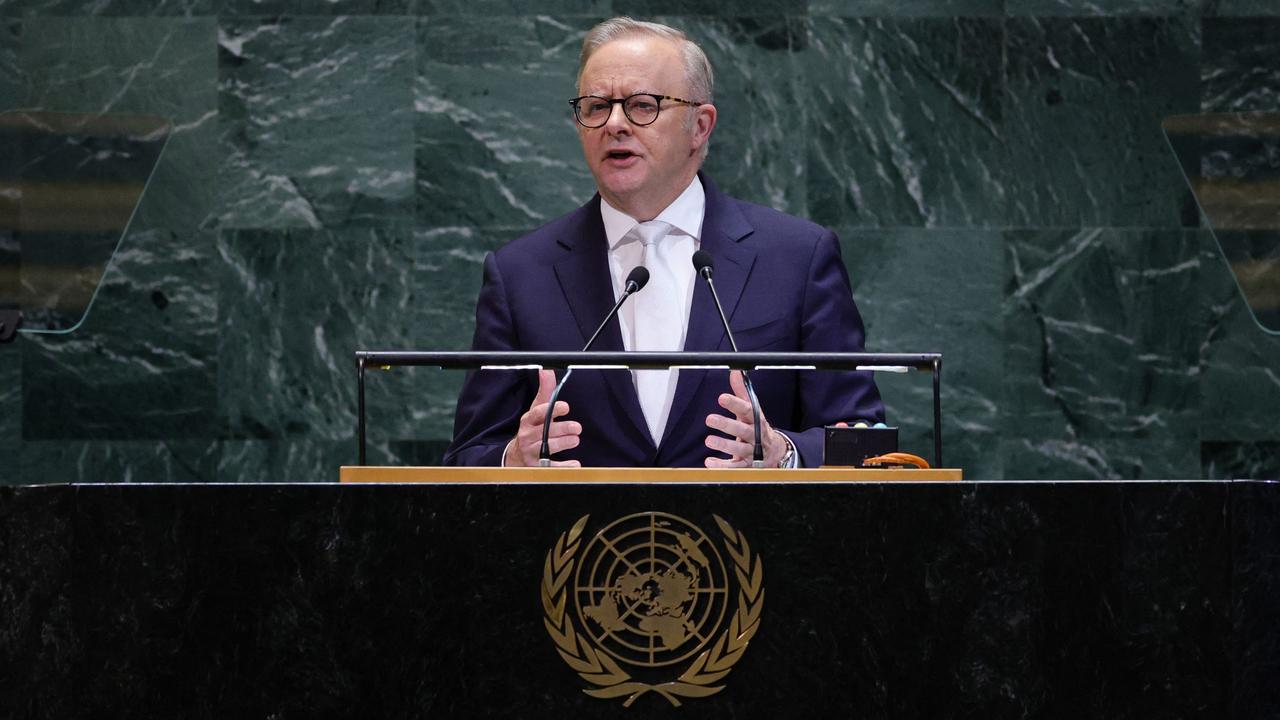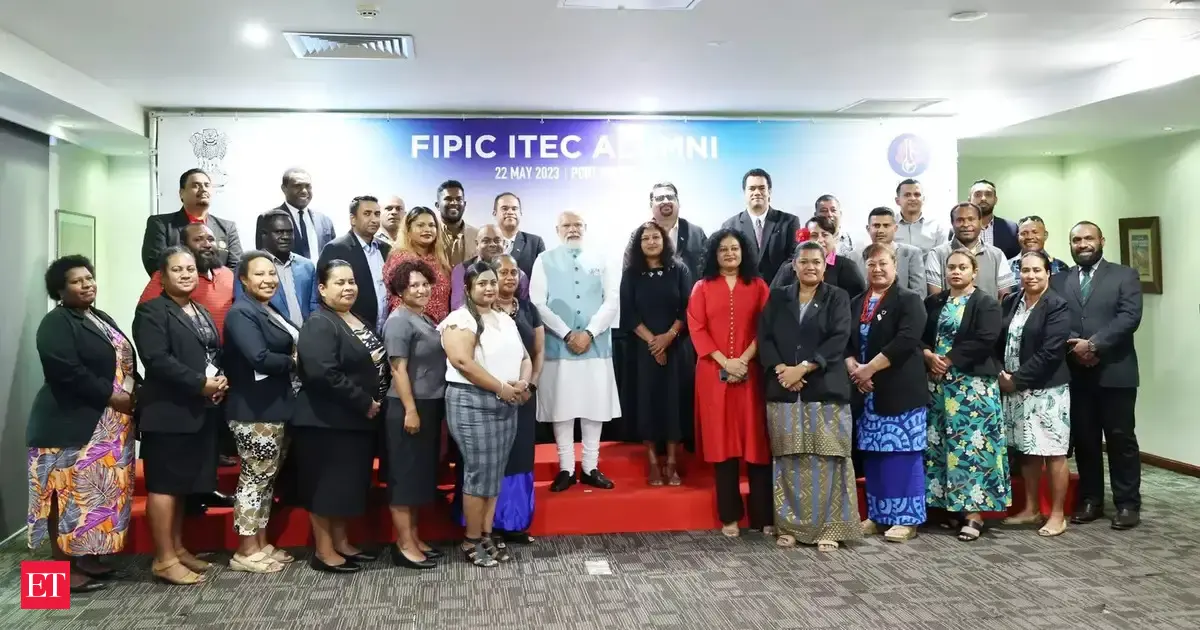By 3 Comments
Copyright news

The Prime Minister on Thursday (AEST) delivered his first National Statement to the UN General Assembly (UNGA) in New York.
Stressing Australia’s status as a middle power, he painted his vision for “a world governed by rights and rules, not fear or force”.
“Where the sovereignty of every nation is respected, the essential dignity and equality of every man, woman and child upheld, and where the shared mission and purpose of the United Nations is not merely to contain the threat of war, it is to create the conditions for peace,” Mr Albanese said.
Restating Australia’s bid for a seat on the UN Security Council 2029-30, he went on to take aim at the governments of many delegations in the room.
“In 2025, we are confronted by all manner of these challenges in old forms and new,” Mr Albanese said.
“Dictators whose hold on power derives solely from their capacity for cruelty to their own citizens.
“Tyrants who invade sovereign nations to further their own ambitions.
“Regimes willing to crush their own people beneath the weight of oppression.
“Autocracies deploying new technology to undermine our trust in democracy, institutions and each other.
“Intimidation and coercion on the seas and in the skies, endangering lives and risking escalation.
“Terrorists – and states which sponsor terrorism – spreading hatred.”
Mr Albanese called out the Iranian government directly.
Last month, he expelled Iran’s envoy in Canberra after the Australian Security Intelligence Organisation (ASIO) found Tehran was behind attacks targeting Australia’s Jewish Community.
“Just last month, Australian security agencies confirmed that the Iranian regime orchestrated the firebombing of a synagogue in Melbourne and a Jewish restaurant in Sydney – criminal acts of cowardice, aimed at spreading fear,” Mr Albanese said.
“We expelled the Iranian ambassador from Australia – the first time since the Second World War our country has taken such a step.
“And here at the United Nations we repeat to the world, there is no place for anti-Semitism.”
He also took aim at Vladimir Putin for the war in Ukraine.
Australia has firmly backed Ukraine in its fight against invading Russian forces, sending military hardware and humanitarian aid to Kyiv, and even leaving the door open to deploying peace keepers.
Canberra has also slapped sanctions on Russia and joined international efforts to kneecap its oil industry.
In response, the Russian President has added Australia to his list of “unfriendly countries”.
Mr Albanese said that “as a nation that knows security depends on sovereignty, Australia stands with the courageous people of Ukraine in their struggle against Russia’s illegal and immoral invasion”.
“We share the resolve of every member of the ‘Coalition of the Willing’ to secure peace on Ukraine’s terms,” he said.
Against that backdrop, he added that it was “the nature of the world the United Nations serves, that this institution is constantly tested”.
“In times of global uncertainty, there are no easy days, but there are clear choices,” Mr Albanese said.
“If the United Nations steps back, we all lose ground.
“If we give people reason to doubt the value of co-operation, then the risk of conflict becoming the default option grows.
“If we allow any nation to imagine itself outside the rules, or above them, then the sovereignty of every nation is eroded.
“If we resign ourselves to the idea that war is inevitable, or relegate ourselves to the status of disinterested bystanders, if our only response to every crisis is to insist that there is nothing we can do, then we risk being trusted with nothing.”
Where the UN “proves its worth”, according Mr Albanese, lies in its ability to tangibly better lives – getting food and vaccines to communities grappling with famine and disease, “helping countries break the shackles of poverty”, “liberating children from exploitation or abuse” and “guarding against the spread of nuclear weapons”.
He said governments needed to show that “the principles on which the United Nations was founded still hold life and weight and meaning and hope for the people who need them most”, and that “nowhere is that task more urgent than the Middle East”.
“For decades, leaders have come to this podium in search of new words and new ways to call the world to action on a two-state solution,” Mr Albanese said, referring to Israel and Palestine.
“Today, I look to words that Australia helped write, 80 years ago.
“Australia is calling for a ceasefire, for the immediate release of the hostages, for aid to flow to those in desperate need, and for the terrorists of Hamas to have no role in Gaza’s future.”
Following through with his pledge to recognise Palestinian statehood ruffled feathers at home and abroad.
The opposition accused him of “recognising terrorism”, Israel’s prime minister vowed a Palestinian state would never exist and Donald Trump condemned recognition as rewarding Hamas.
But in recognising Palestine, Australia has joined more than 150 countries that have, including close allies Canada, France and the UK.
Mr Albanese said his step aligned with “the charter that forms the very foundations of this institution”.
“We are determined ‘to save succeeding generations from the scourge of war’, ‘to reaffirm faith in fundamental human rights’, ‘to promote social progress and better standards of life in larger freedom, and for these ends, to practice tolerance and live together in peace with one another as good neighbours,’” he said, quoting from the UN Charter.
“Every nation that takes a seat in this room has put its name to those principles.
“Peacekeepers and aid workers from all over the world have risked and lost their lives in the service of those ideals.
“So we must ask ourselves — when can those words hold meaning, if not now? Where can those words apply, if they do not apply to the Middle East?
“And what can we, the members of the United Nations say we stand for, if we cannot say we stand for this?”



